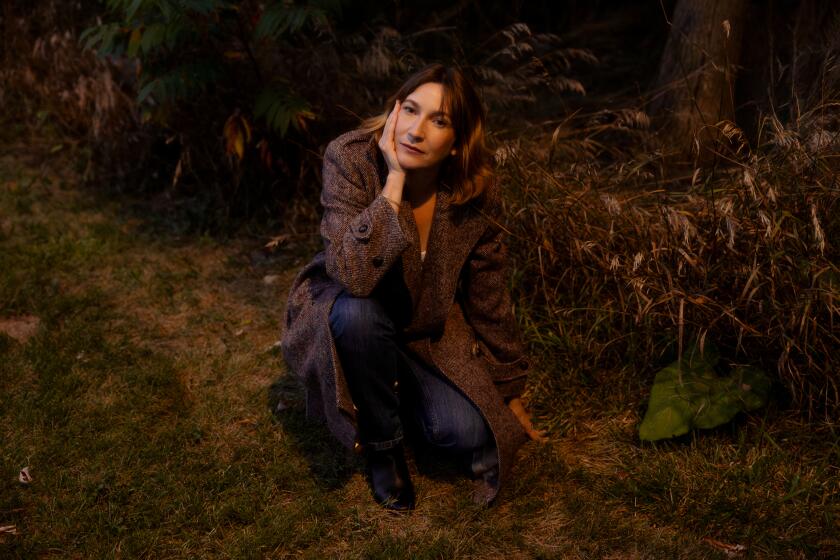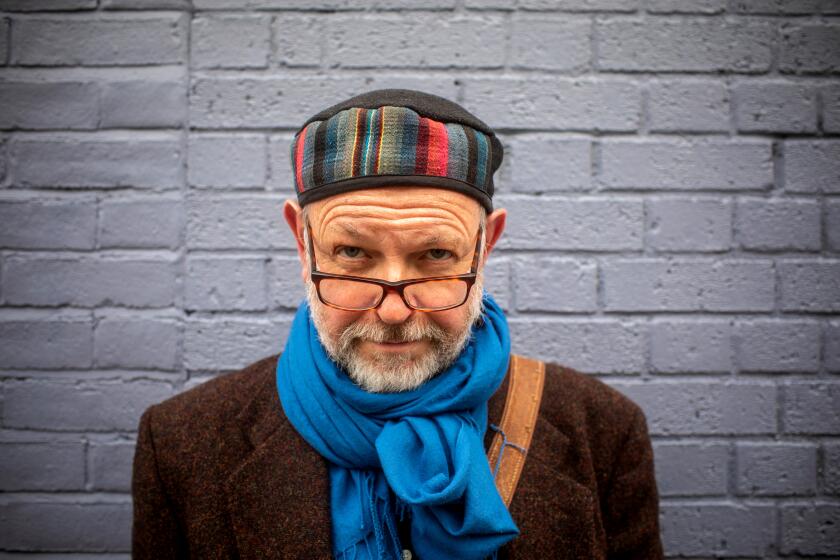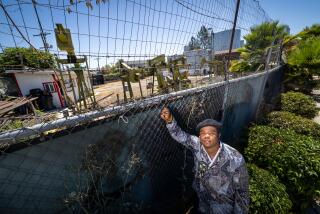Summoning mothers to their power to fight climate change and inequality
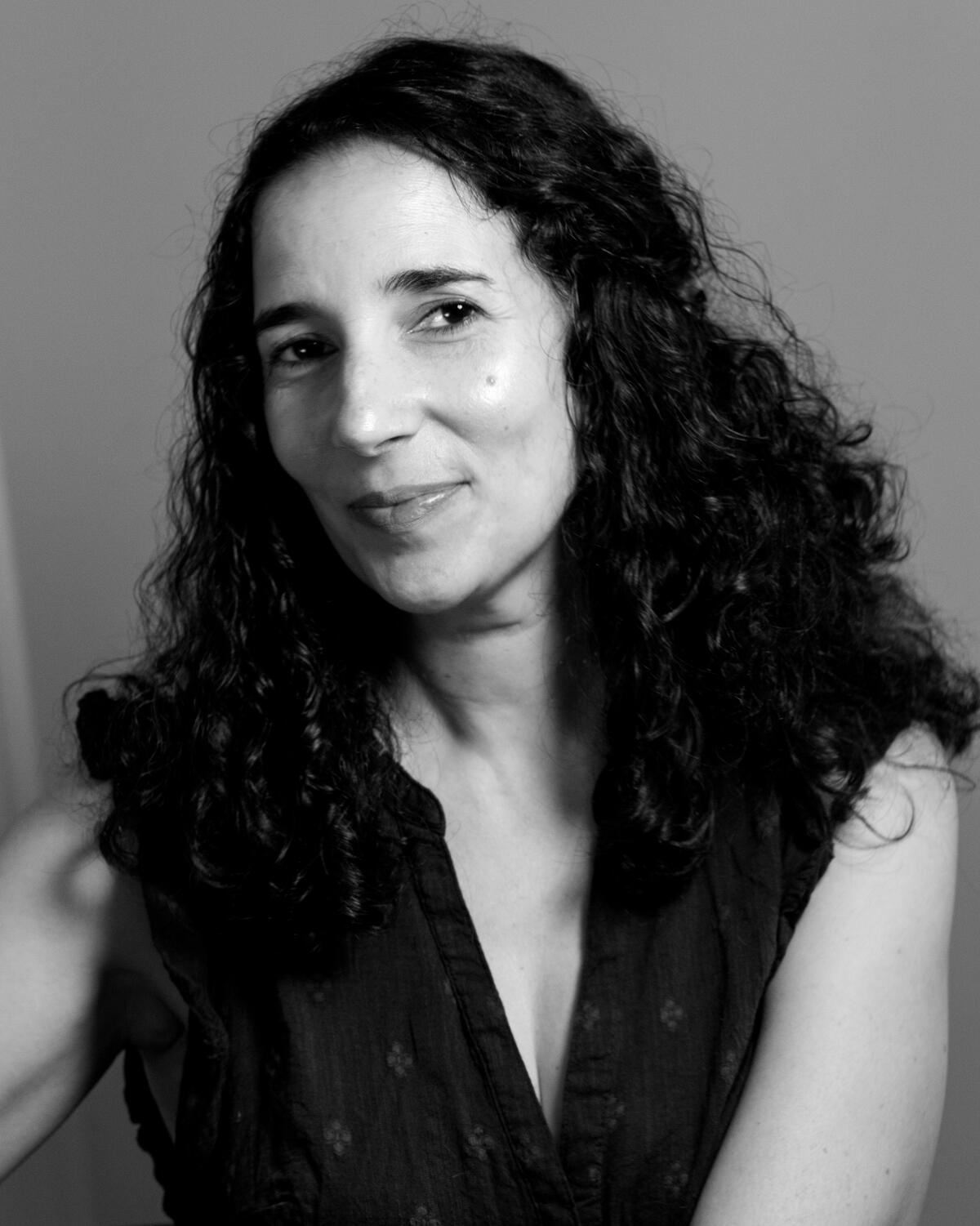
- Share via
On the Shelf
Lessons for Survival: Mothering Against “the Apocalypse”
By Emily Raboteau
Henry Holt: 304 pages, $30
If you buy books linked on our site, The Times may earn a commission from Bookshop.org, whose fees support independent bookstores.
As the Northern Hemisphere slowly emerges from the dark days of winter, we welcome the extra hours of daylight. In Emily Raboteau’s New York City neighborhood, a different kind of daylighting may happen; the enormous proposed civic project to daylight Tibbetts Brook, from where it was buried underground, will provide flood control and create natural beauty. (Similar projects, in which paved-over streams are brought back to the surface, are occurring in various places in California.) For Raboteau, it’s an exciting project but also a reminder that her Bronx neighborhood is living on borrowed time. In Raboteau’s book of essays, “Lessons for Survival: Mothering Against ‘the Apocalypse,’” her care for her neighborhood and her maternal care for her children are connected as she faces an uncertain climate future.
The rising sea levels that threaten the California coast will have a greater impact on New York City, submerging the areas near Raboteau’s house. Daylighting Tibbetts Brook spotlights how climate change lives in the same ecosystem as race and class and the continuing effects of colonization. During our March interview via video chat, Raboteau reminds me, “The Lenape called [Tibbett’s Creek] Mosholu.
“[The project’s] messy,” Raboteau continued. “If it comes to pass, it will be the most expensive [$130 million] green action in New York. [But] should we be spending that much money on this climate mitigation act that is in a sense an act of reparation? Or should we be spending it to think about a managed retreat for the poorest people, in the low-lying areas, who know we’re living on borrowed time now?”
Tommy Orange was against revisiting Native American history in his new book. Why he changed his mind
Tommy Orange’s much-anticipated new book, ‘Wandering Stars,’ serves as both a prequel and a sequel to ‘There There.’
In New York, anxiety about an uncertain future and economic pressure are expressed in art. One of the essays follows Raboteau’s travels to document a local artist’s warning signs about the coming catastrophe in multiple New York City locations. She journeys to see many of the city’s public art projects — including a gorgeous photo essay on murals commemorating birds likely to be extinct soon — and other calls to action to mitigate climate change. The birds, it turns out, are also a way for Raboteau to distract herself from chronic pain — both physical and metaphysical — her body’s response to the weight of our changing world.
As the result of that wandering, she comes into contact with a broad swath of people, documenting their environmental fears but also their suspicion that such art projects are signs of gentrification and additional economic disparities. Raboteau calls our attention to the ways in which environmental pressures will create even more social inequality between those who can afford to move, and those who are rooted by economic necessity and lack of access to alternatives.
Living on land that has seen multiple generations of inhabitants creates another pressing question for Raboteau, whose book of connected essays is about moving through our new 2020s reality as a mother. She is deeply conscious of a challenge posed by Jonas Salk, who insisted that our obligations to future generations should be our biggest priority — not just the ancestors of the two sons she and her husband, writer Victor LaValle, are raising.
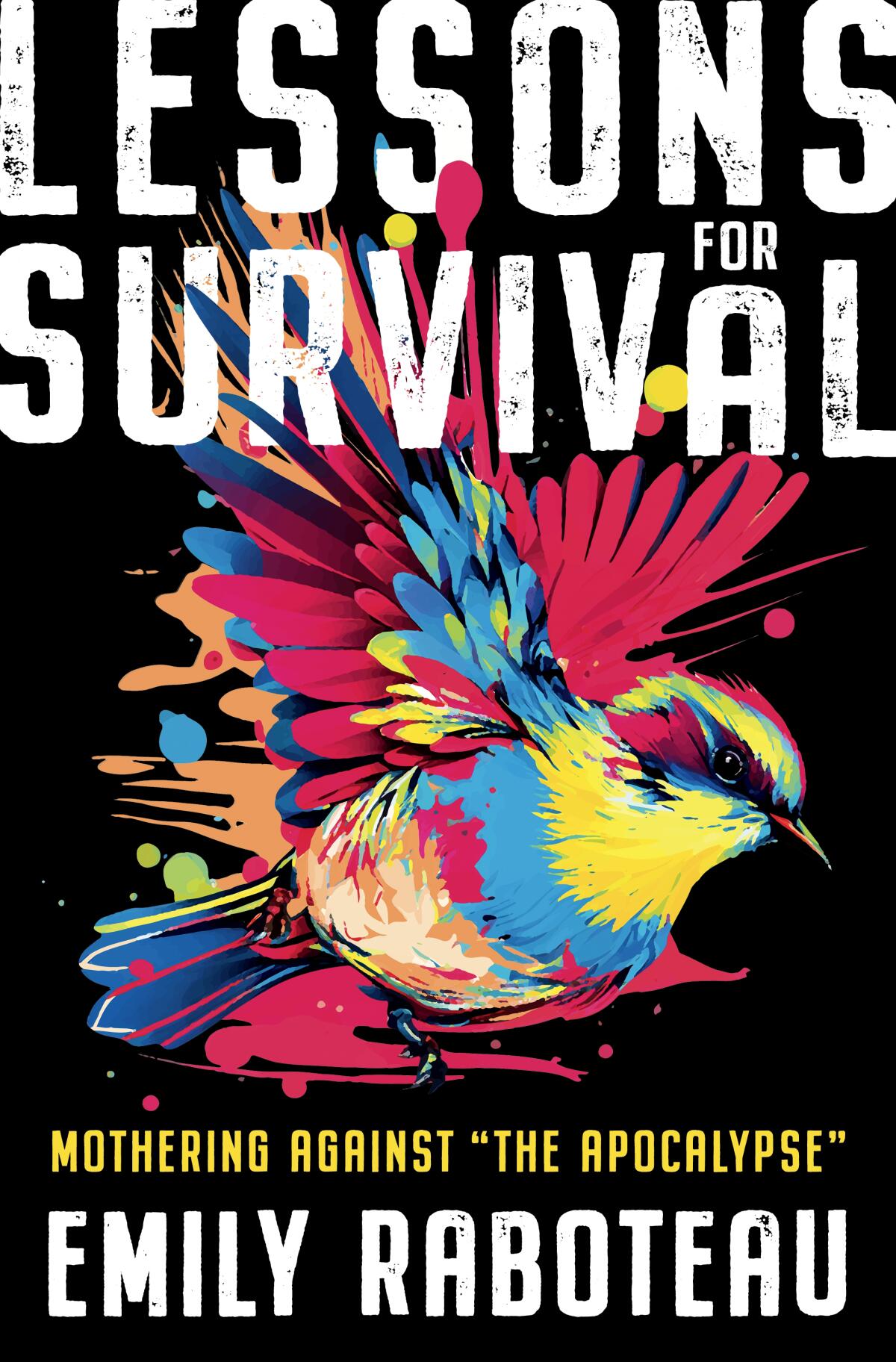
She’s aware that many of us don’t think beyond our immediate present. “[It requires] thinking about ourselves in the past as we consider the future generations, like that edict of the Iroquois law thinking seven generations ahead. That’s very abstract and challenging for us.”
As a scion of her Black ancestors, and the mother of a new generation, Raboteau keeps photos in her workspace to remind herself that she is the result of her family’s past struggle. “It’s a story commonly told in the Black tradition, and it was told to me by my dad at some point: ‘Your great-grandfather was a slave so that his child could be a preacher so their child could be a teacher so that their child could be a politician so that you could be an artist.’ I like being reminded that you are actually the fruit or the flower of a long process of ancestry that toiled so you could do this.”
Raboteau writes poignantly about her recently deceased father, scholar Albert Raboteau, whose work on the religious traditions of slaves is seminal in the field of Black studies. He came from an area of Mississippi devastated by Hurricane Katrina, and today, Raboteau’s family has left due to its aftereffects. While environmental catastrophe has scattered her people, so too have the effects of racism and poverty.
“When [my father] was in his mother’s womb, his father, who was a grocery store clerk, was murdered by a white man. This was in 1943 and the man was never tried ... for the crime. So my grandmother fled the Jim Crow South to save the life of my dad, who was not yet born, and his older sisters and they went to Michigan.”
In ‘Alphabetical Diaries,’ Sheila Heti has once again tried something that feels impossible: collecting her personal diary entries for more than 10 years, re-ordering the sentences in alphabetical order, to build a different form of narrative.
Her father died of dementia in 2020, in the midst of the pandemic. Her grief began before he died, as her sharp solastalgia for the man he was before illness mirrored her feelings about the changing Earth and all that has already been lost. “We see that solastalgia grafted on the landscape, but there’s also a kind of bittersweet element in parenting [in watching children grow and change].” She now sees her father’s image on the ancestor wall. “The wall reminds me to think about what’s come before, where we fall in this lineage and what we owe the next generation.”
During a research trip to the Arctic, she found herself sleeping in a tribal council office under an ancestor wall like the one in her office. It was a reminder of all that has already been lost, and just how perplexed she is by feelings of climate rage and grief.
“I was encouraged to speak to elders in that community who remembered the land, what it was like before the warming began, and I asked one elder, ‘What do we do with our anger?’ And he said, ‘That’s easy. We take care of each other.’”
Taking care of each other means moving toward collective action. It’s one way of combating the individual sense of being powerless. Raboteau is working with multiple groups across New York City that are combining social and economic justice with climate action. Tied to New York because they’re dependent on the income she and her partner earn in the city, they stay. She writes that her children, like many urban kids, suffer from the asthma associated with rising carbon levels. But the solution to stay and fight only works up to a point, Raboteau says. “I learned from my grandmother’s story the lesson of the fugitive. If something’s gonna kill you, you run when it gets to that point.”
With ‘Cahokia Jazz,’ Francis Spufford tells an intricate, suspenseful and moving story that rises from the mists of America’s prehistory and morphs into an alternate version of America’s story.
Climate crisis is not the only variable she must parent her children through. As the mother of two Black sons, the murder of George Floyd added to her already vigilant state. During the Black Lives Matter protests, she noticed graffiti near her building: “All mothers were summoned when he called out for his mama.”
“There’s something metaphysical when it hits your heart like that,” she says. “[George Floyd] called out to his mother in the last moments of his life. It was an appeal for mercy. Not just air but mercy. It hit a lot of us, whether we’re mothers or not. You’re part of this pain and you have the power to be merciful and caring. It moved me to tears because it summons mothers to our power.”
Summoning mothers to their power is a way forward in climate survival strategies and in fighting for equality. Although Raboteau is quick to point out that you don’t have to be a mother — or a parent — to feel the same impetus and passion. “Saidiya Hartman says that ‘care is the antidote to violence.’ I don’t want to suggest that motherhood is the only doorway to which you arrive at care because certainly it isn’t. But for many of us, like me, motherhood has been a complete alteration of my experience in the world, like the shattering of your identity. There’s a loss there too; I feel a little nostalgia about myself as a person without kids and the freedom that came with it. But motherhood has been very politically activating.”
To replenish her energy, Raboteau finds great pleasure in gardening, another reminder of her family roots. Putting our hands in the dirt and bringing forth beauty is a way to acknowledge previous generations unable to access both bread and roses in the struggle to survive. Gardening has created community, and Raboteau feels a deep connection to others. She says joy and beauty are part of the struggle.
She tells me of one such moment in the South Hebron Hills. “When I was in Palestine, I spoke to one mother through a translator. She had had a hard life. She’s a Palestinian woman. Her home is more or less a tent that could be bulldozed by the IDF. But she had filled an abandoned tire with dirt and she grew roses. She found the time to do that, and I found that act really remarkable. This isn’t for sustenance. This isn’t to eat. It’s not growing olives to sell. It’s just for the pleasure of having bright pink.”
Pink connotes dawn, the promise of coming daylight. It reminds us that daylight often looks like hope.
More to Read
Sign up for our Book Club newsletter
Get the latest news, events and more from the Los Angeles Times Book Club, and help us get L.A. reading and talking.
You may occasionally receive promotional content from the Los Angeles Times.

